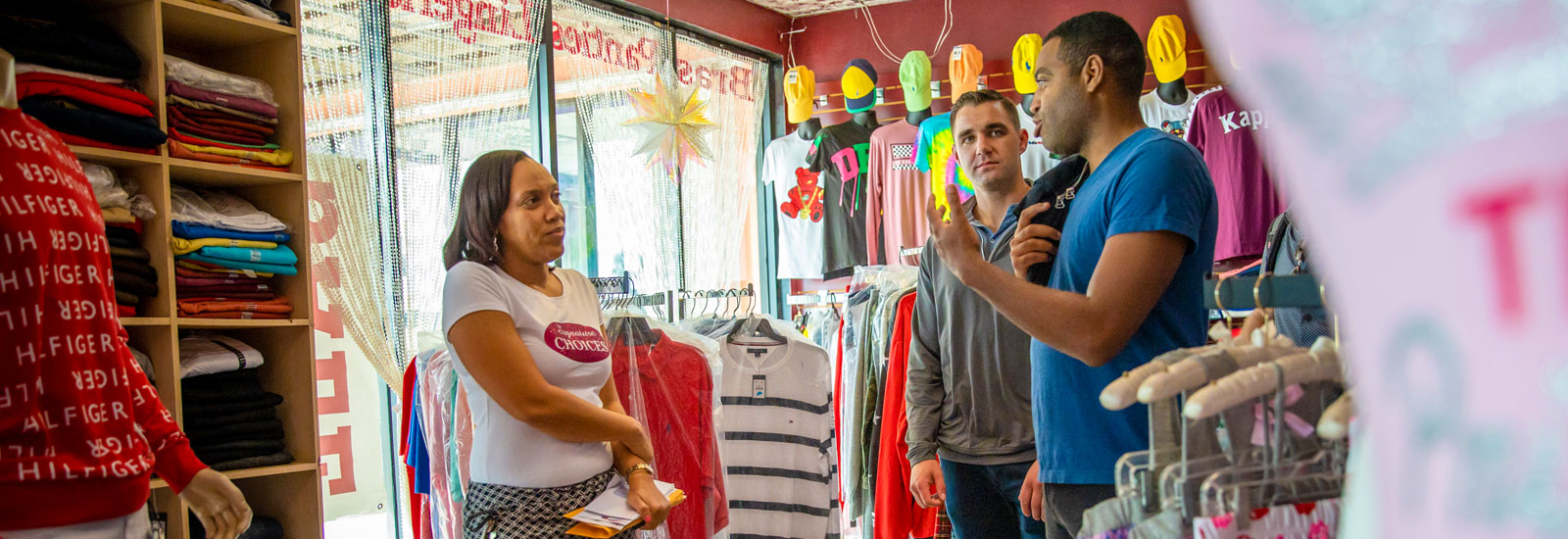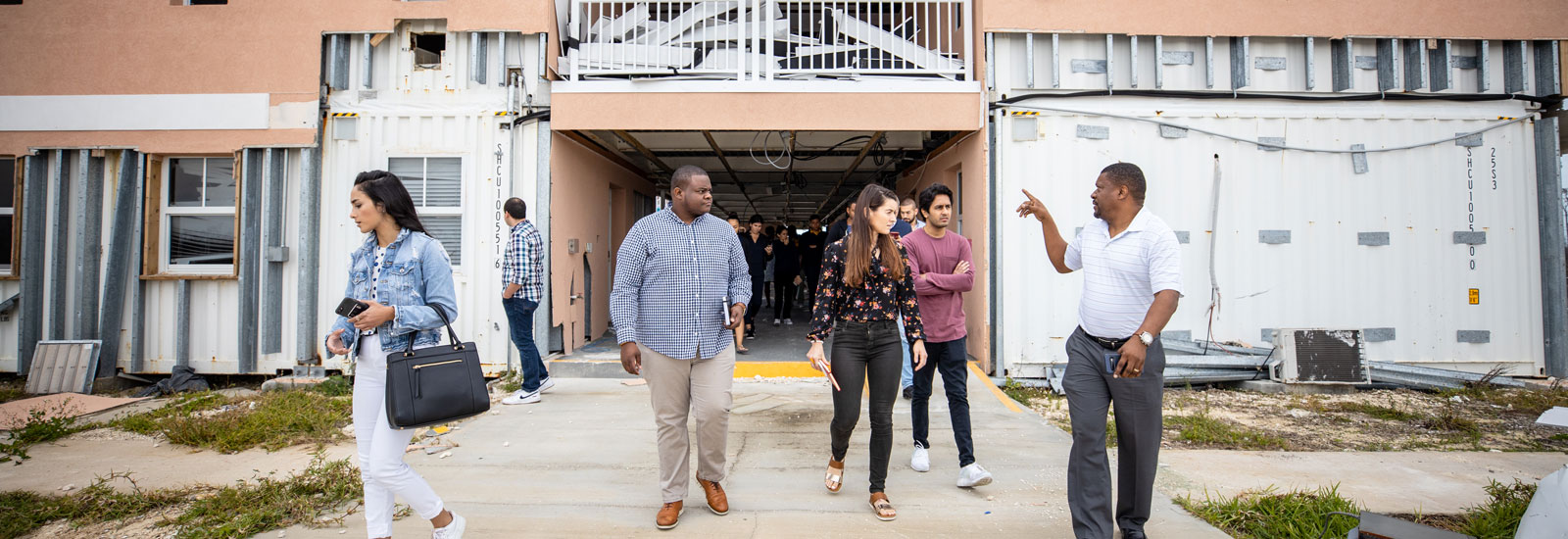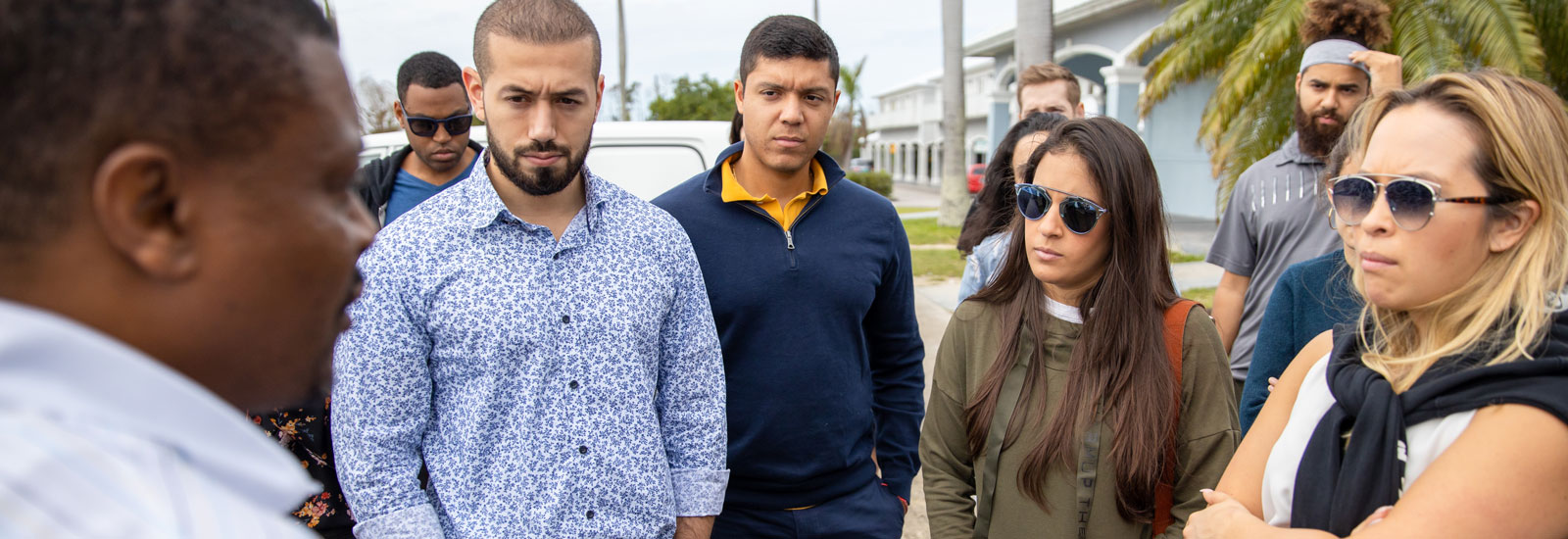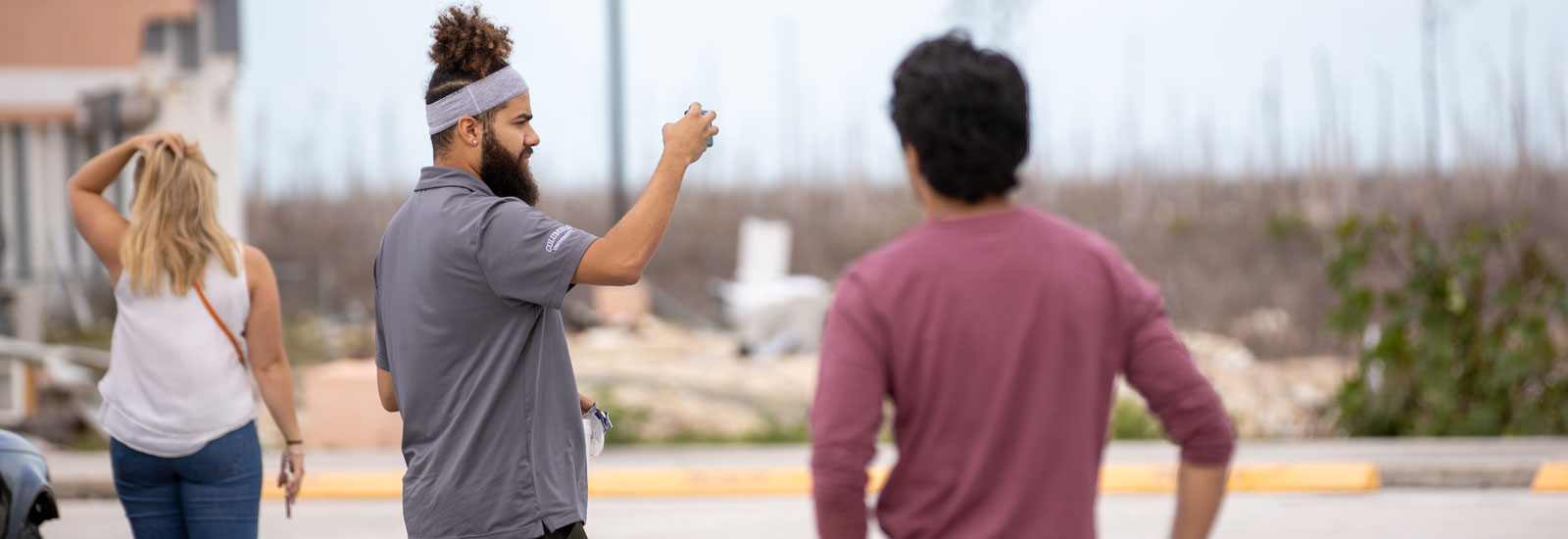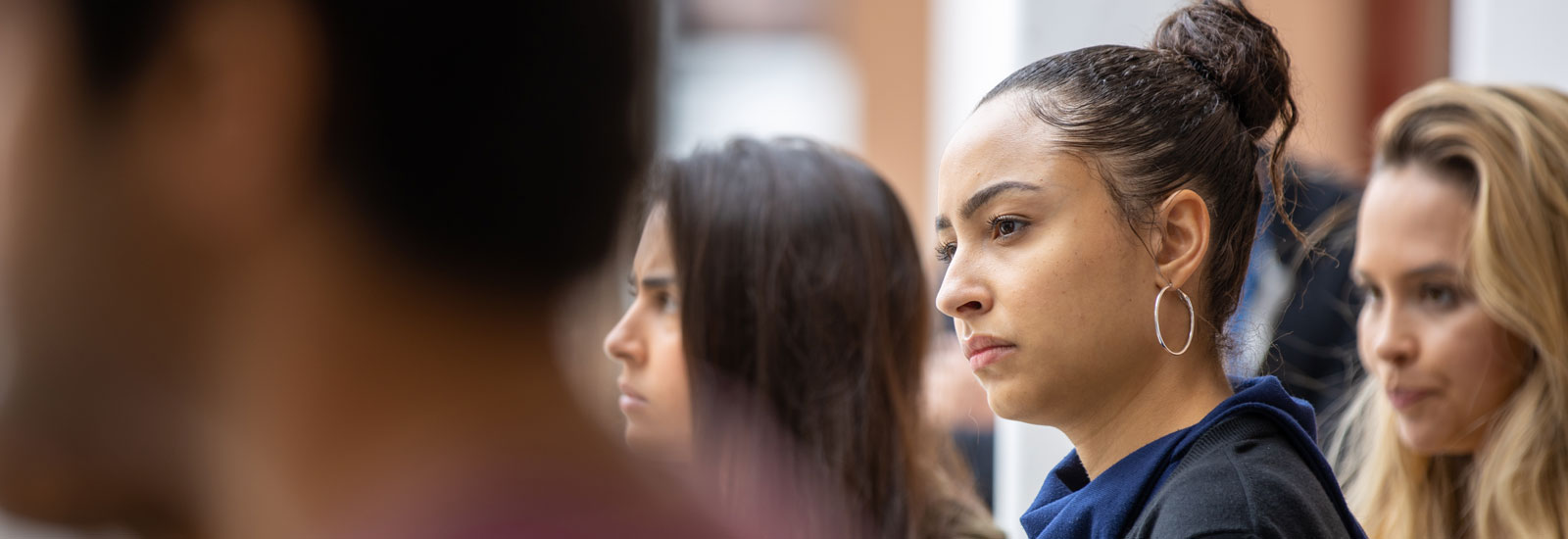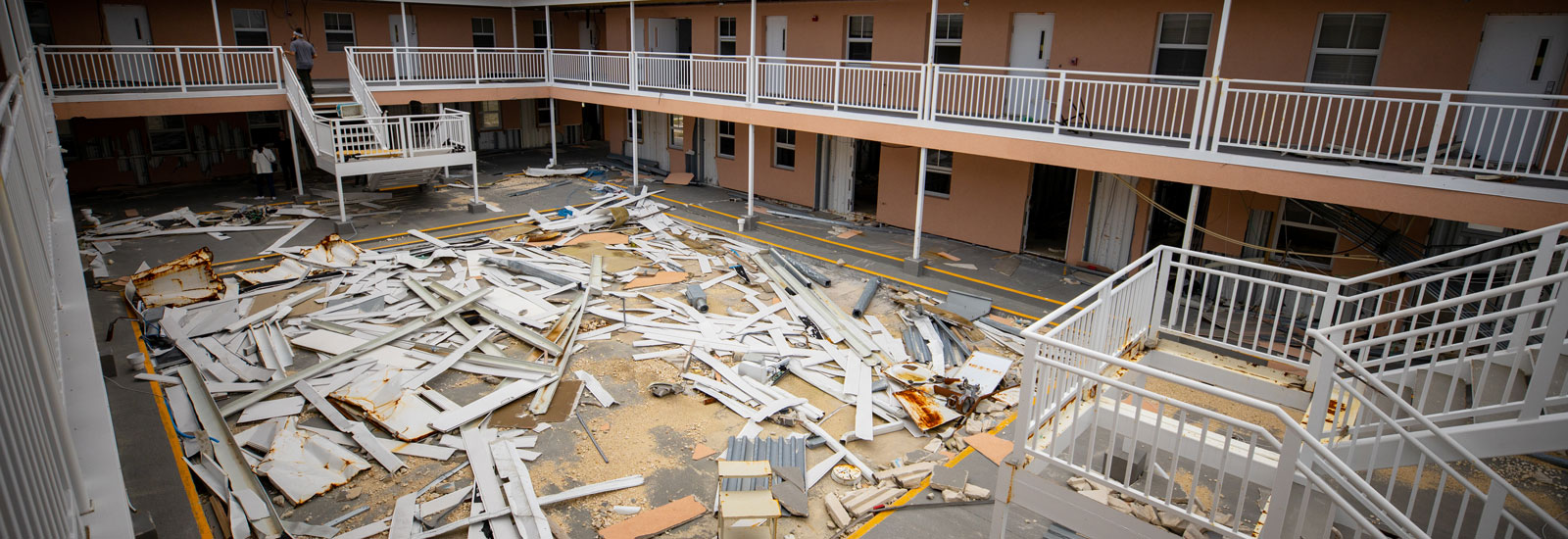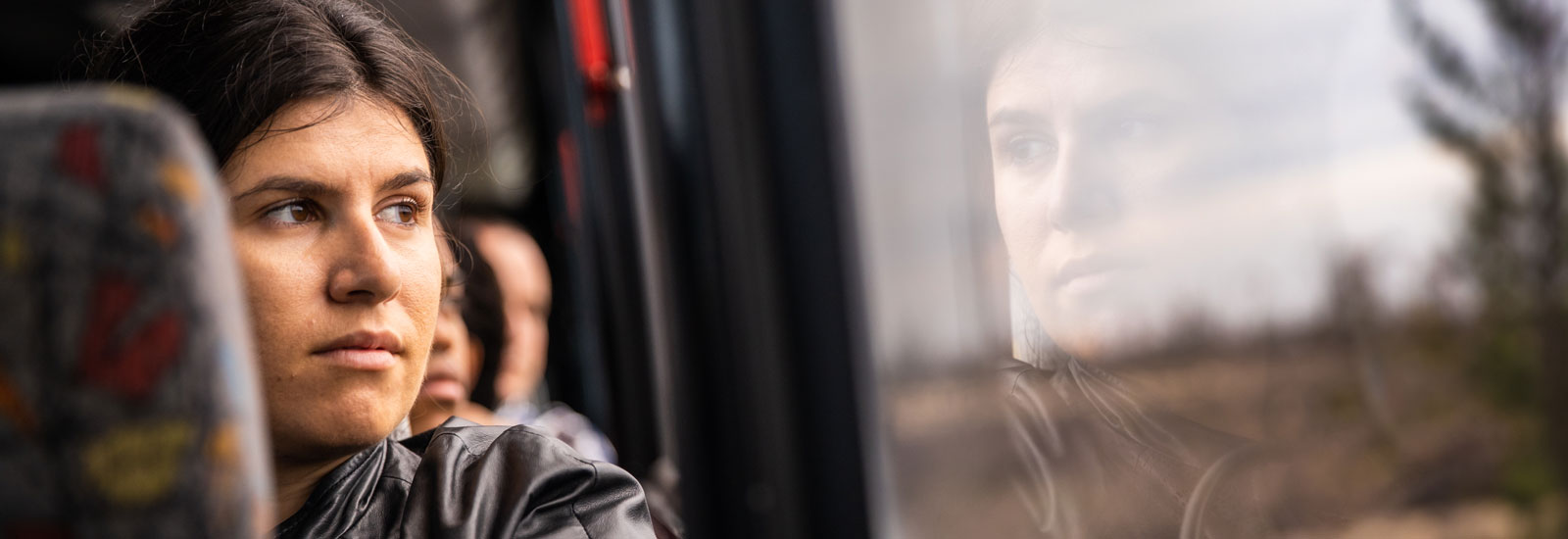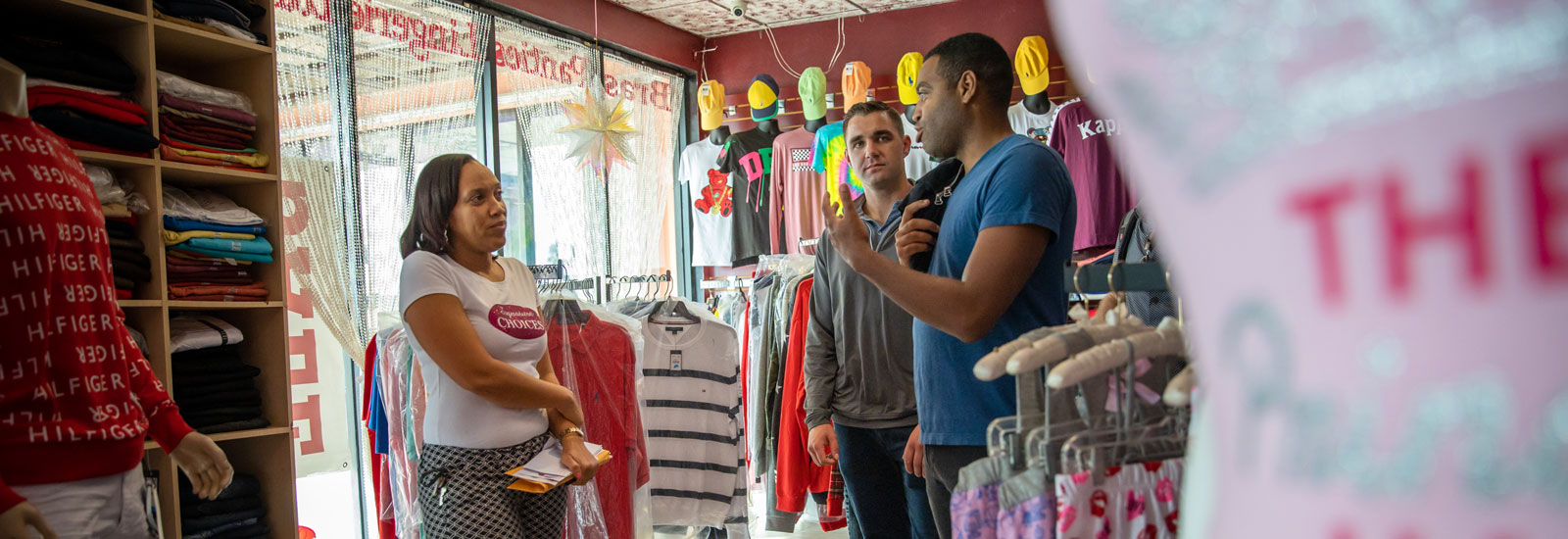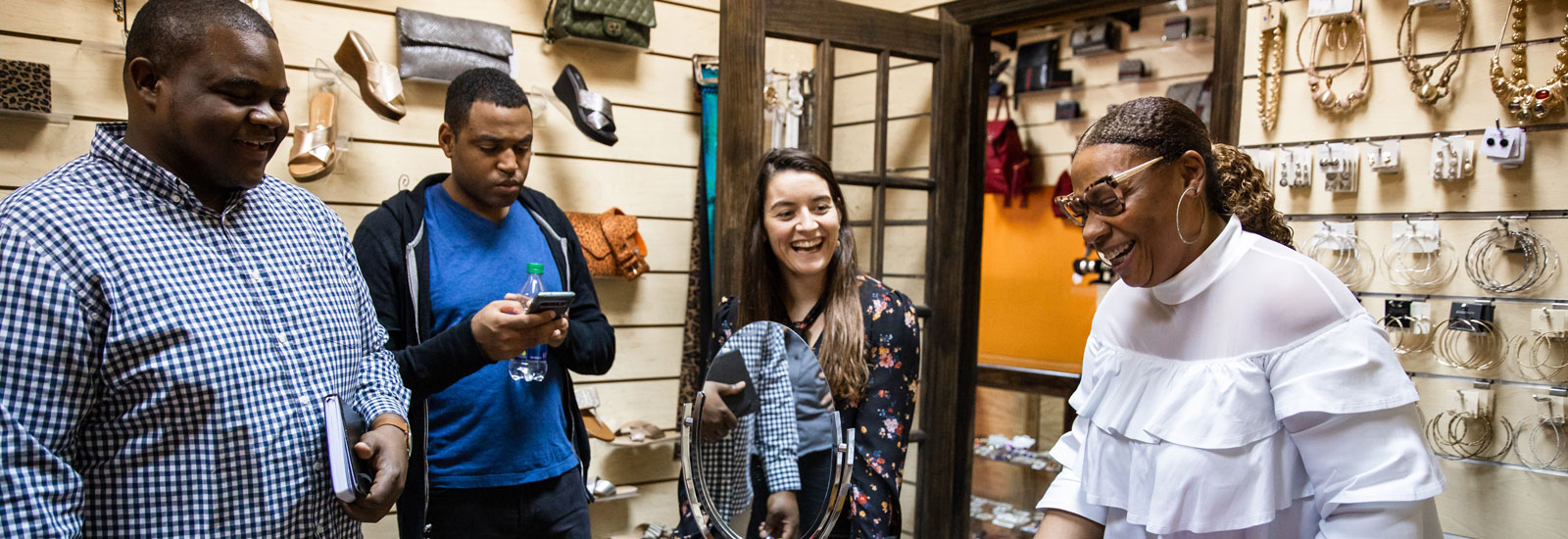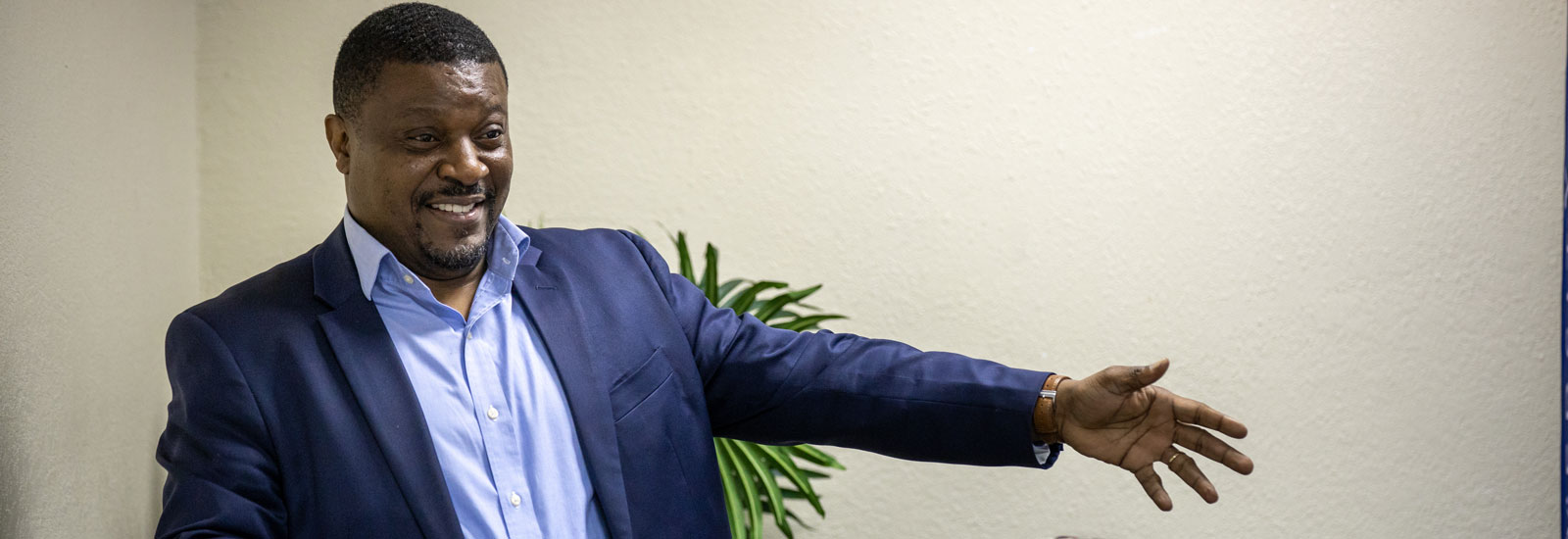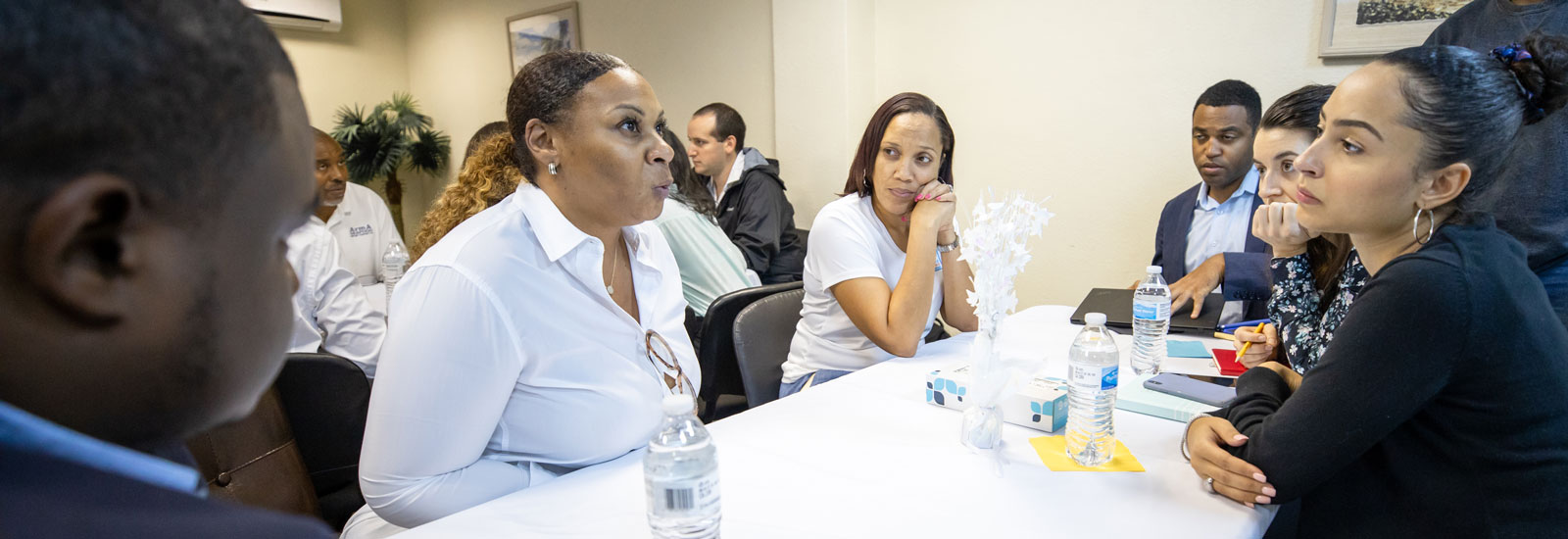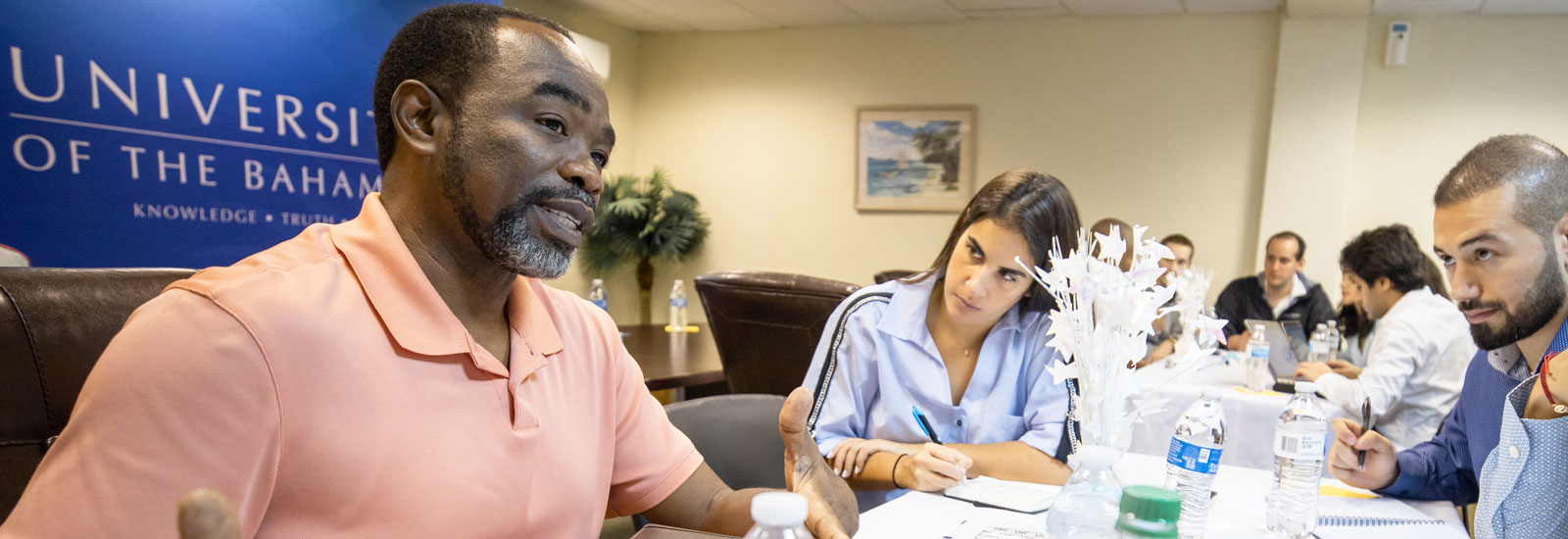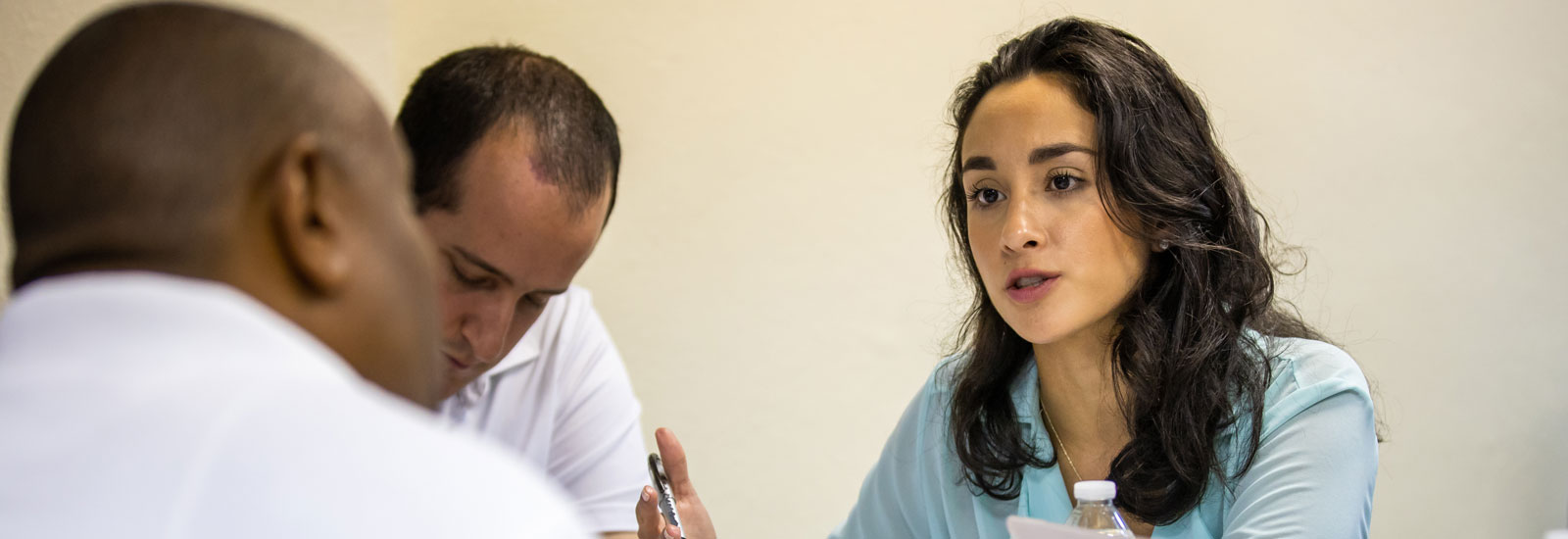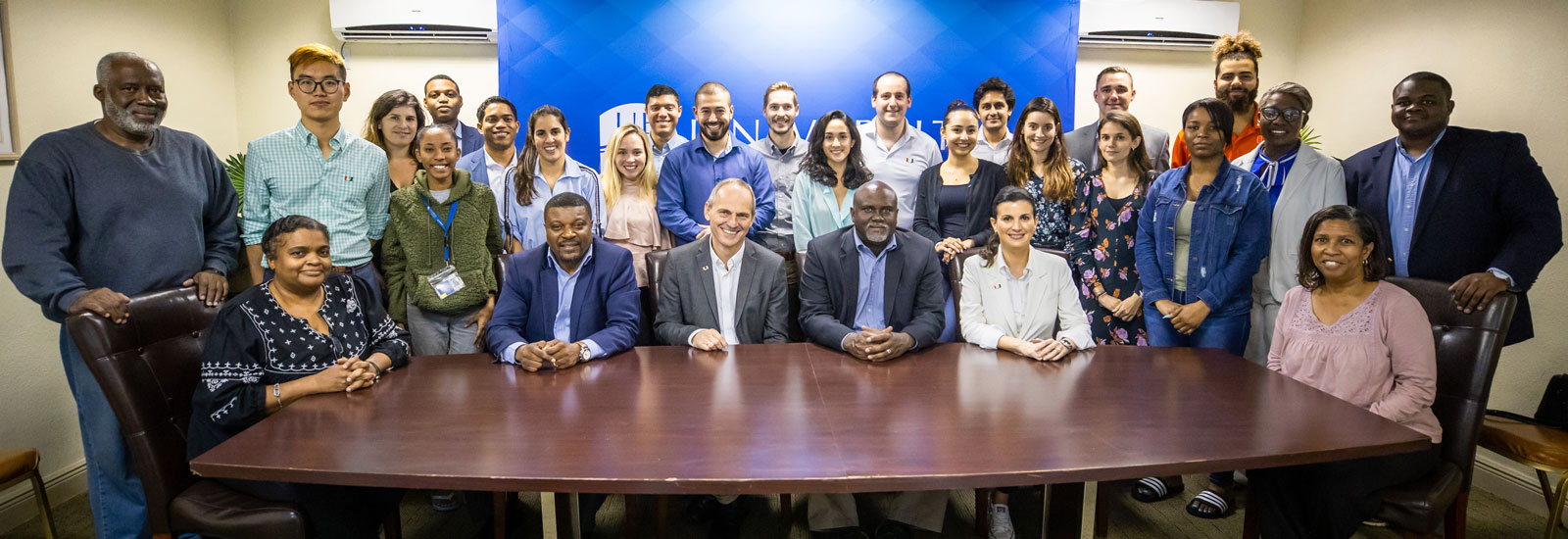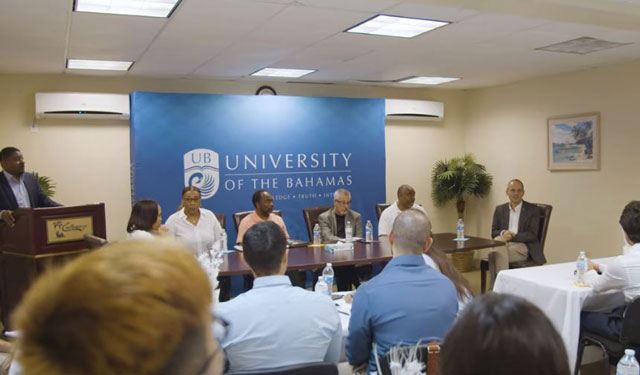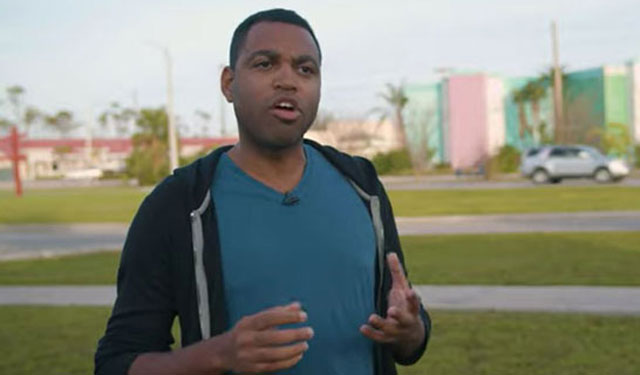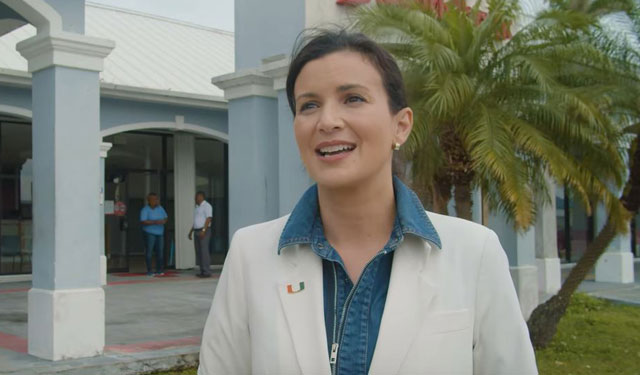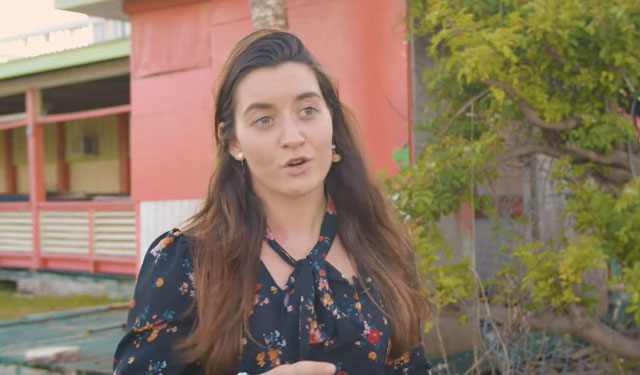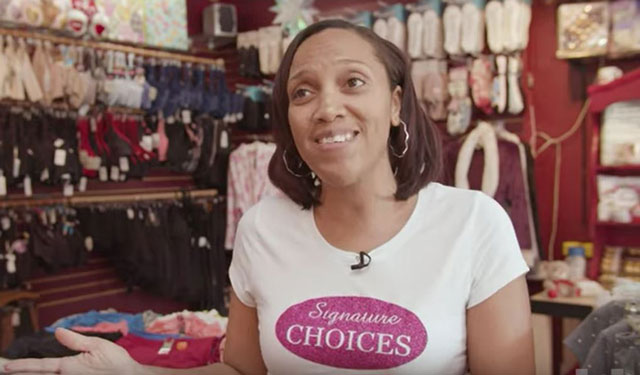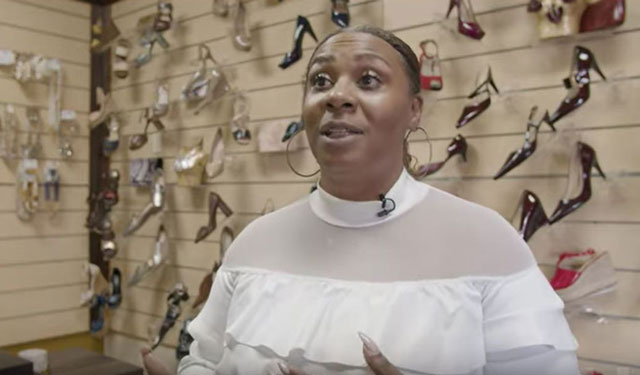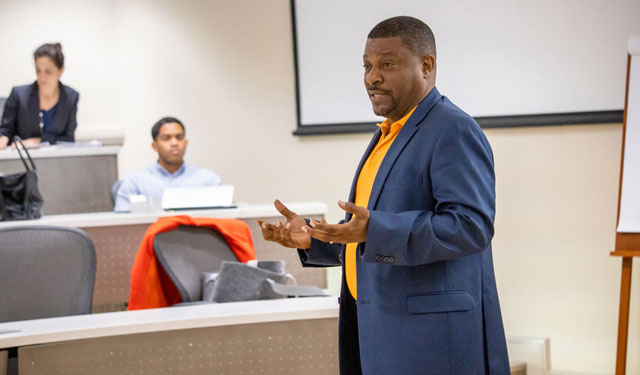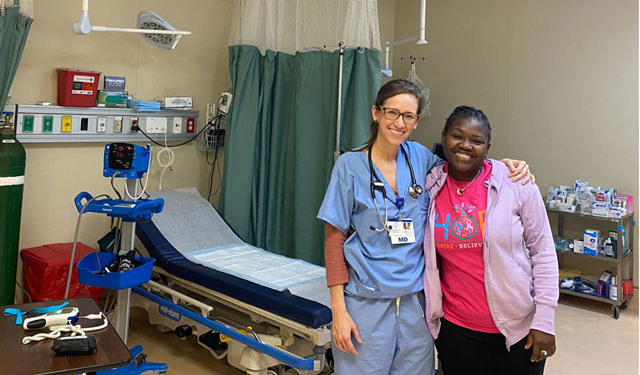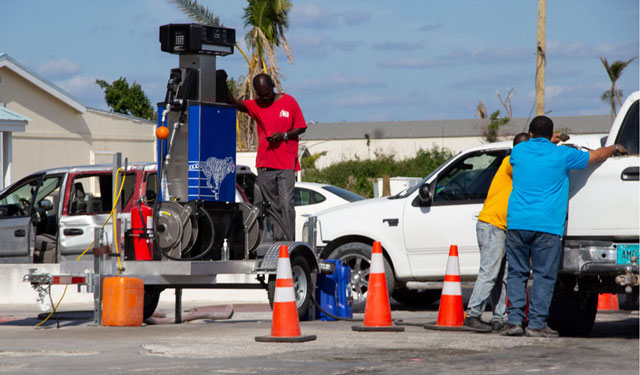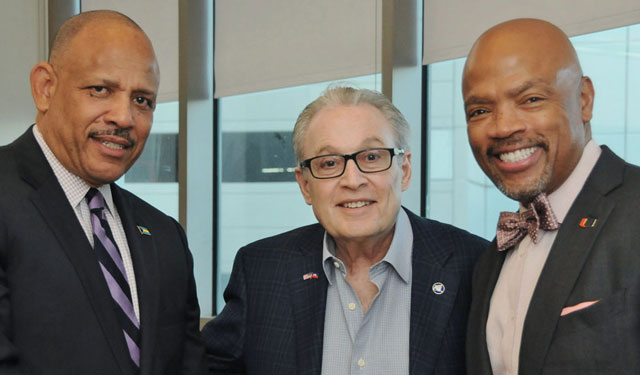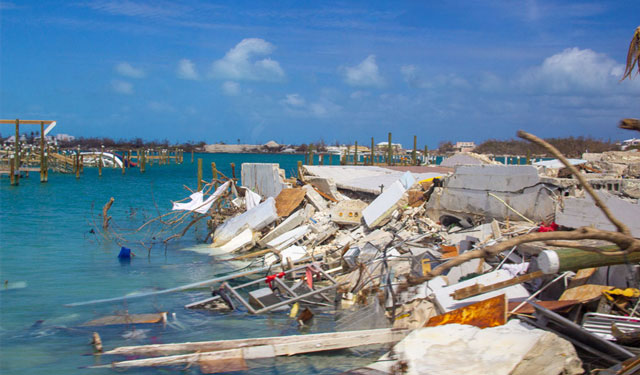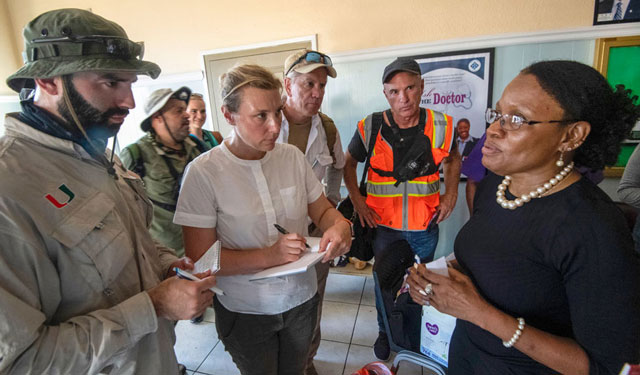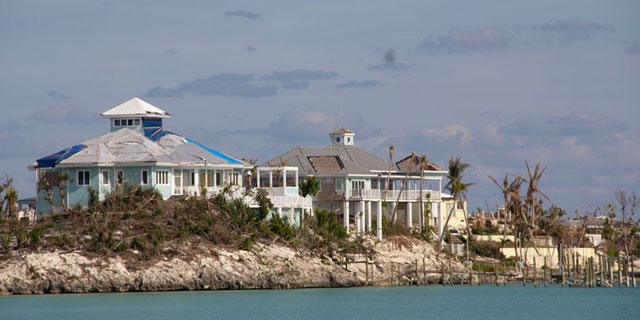Patricia Abril, vice dean of Graduate Business Programs at the Miami Herbert Business School, outlined the University’s mission.
“One of the roles of the University of Miami and of our business school is to solve complex problems in society and also to be a good citizen, leader, and teacher in the hemisphere,” she said. “We see this as a project that is stepping in the direction of doing that—and it’s a win-win-win for everyone involved.”
Abril noted that the two universities had been looking for the “proper insertion point” and the chance to do something of consequence together.
“After Hurricane Dorian,” she said, “it became evident that we didn’t want to be a one-off, that we wanted to be a friend and to develop a collaboration of fresh minds that is meaningful and lasting.”
Ian Strachan, vice president of the University of the Bahamas North Campus in Freeport, together with several of his faculty members and a handful of students, celebrated the launch of the consultancy project.
“In many ways we are the poster child of Hurricane Dorian,” Strachan told the group. The campus, situated on a remote parcel of marshland barely two feet above sea level, now stands as a pink cement shell amid miles of terrain washed clean of vegetation “when the entire ocean rose,” he said. The nearly 1,000 students enrolled there have all been displaced.
“We have to use our imaginations and dream and be bold,” he said, adding that he was inspired “to see how the world wants to help the Bahamas.” Strachan explained that many Bahamian students who had hoped to participate in the project had been recently temporarily relocated to a university in Virginia to continue their studies. They will rejoin the project as it moves forward.
A classroom meets the real world
In the conference room at the hotel in Freeport, students met for the first time with their respective business leaders. They listened to Thompson’s story and that of three other Bahamian company owners and quickly absorbed the impact. These were not classroom concepts about the risk inherent to business; but instead, this was about companies on the verge of collapse with livelihoods hanging in the balance.
Gaby Gallou, Denzell Turner, Stephanie Wehby, Chris Williams, and Phil Winn—all second-year business graduate students—met with Thompson, proprietor of Genesis, Freeport’s premier lingerie and gift store. They also met with Erica Hanna, “the shoe lady,” proprietor of the Steppin Out shoe store. Both retailers are looking to reset their enterprises against the challenge of online sales and reduced finances of the local population, many displaced by the storm. Both seek help in marketing, accounting practices, and inventory control.
M.B.A. students Natalia Aldana, Yash Bhatti, Jason Rosen, Isabel Sutnick, and Alex Nyberg, a doctoral student in biology, met with Anjoun Armaly, proprietor of Arma Seafood import/export. Armaly lost all his equipment and inventory of lobster, conch, and stone crab, and he had invested $200,000 of his own money, plus a $90,000 loan, into the business. He estimated needing $100,000 to get back on his feet, and the group recommended cost-cutting savings and trimming his labor force.
Hasan Alzalzalah, Stephanie Farache, Emilio Hasbun, and Sara Riascos, all second-year M.B.A. students, met with Winston Pinnock, owner of JBI, a canned goods importer. Pinnock lost upwards of $500,000 of merchandise when the storm flooded his warehouse.
Zhihao Chen, from the M.B.A. program, joined Chloe Palibsky and Osaro Qualis, both third-year law students, and Alexzander Hudson, a doctoral student in environmental science and policy, and met with Matthew Carey of Bahamas WiMax, a small domestic communications company that competes against two large foreign-based internet providers. WiMax lost five towers and 50 percent of its customers, and Carey, born and raised on Grand Bahama, is looking for innovative ideas to reestablish his business by locating new niche markets.
Coaching for consultancy success
Niemeyer, who joined the University last year after a 20-year career with McKinsey & Company, a global management consulting company, coached the students after their initial client meeting. “This is a unique situation in a unique economy and the chance to make a tangible impact and really help people,” he said.
While his students know from their classes that consultancy is mostly about problem-solving—structuring, prioritizing the issues, and analyzing them to then arrive at recommendations—he emphasized forging an essential intangible: trust.
“You won’t succeed if you don’t build a personal relationship with your clients. How many of you can say you know your client’s story? What their business does? You have to build trust and care about them, and how do you do that? By listening and asking open questions about their companies and knowing what they’re going through.”



